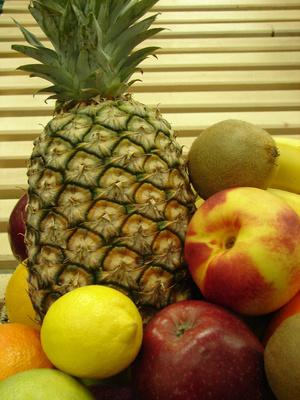If you are a new mom, losing the baby weight and keeping your energy up while caring for your newborn can be a challenge. It is sometimes easier to skip eating healthily after childbirth because you may be too busy caring for your baby. However, there is more to being healthy after childbirth than just losing the extra fat. Think of your baby, too, especially if you are breastfeeding. Proper nutrition will keep you on track, even though, technically, you are no longer eating for two.
Carbohydrate
A new baby demands your time and energy. You may be staying up later at night or experiencing sleep interruption far too often, making you feel exhausted the next day. At least five servings of breads, cereals and potatoes per day can give you enough carbohydrates to give you a steady supply of energy to fuel your body. Choose whole grains versus refined grains. Whole grains, such as whole wheat bread, whole wheat pasta or brown rice, are better sources of fiber and other important nutrients, such as selenium, potassium and magnesium. Avoid the so-called “white” carbs, such as white rice, white bread or regular pasta. Take sugar, another form of carbohydrates, in moderation.
If you had developed diabetes during pregnancy, also known as gestational diabetes, you have to watch what you eat even more. According to the Centers for Disease Control and Prevention, some women who developed gestational diabetes can have Type 2 diabetes later in life. So, if you are at a high risk, make sure to watch your carbohydrate intake and stick to eating good carbs only.
Proteins
Two servings of meat, fish or alternatives can make your body leaner and stronger. Choose fish rich in omega-3 fatty acids, such as salmon, white tuna and mackerel, to help lower cholesterol. A diet high in protein (meat, fish, eggs or legumes) is also good for breastfeeding moms. Grilled skinless chicken breasts is a healthy entree. Serve it with a baked potato or 1/2 cup of brown rice.
Meat, oysters, poultry, legumes, eggs, fish and seafood are sources of zinc, which supports a healthy immune system, promotes growth and development. Zinc helps in cell reproduction, wound healing, tissue growth and repair. Avoid eating too much red meat, such as beef, to lower your risk of heart disease. If you are not a big fan of meats, try eating tofu instead.
Fruits and Veggies
Eat at least four to five fruits and vegetables per day. Snack on apples, oranges, strawberries, kiwis, bananas, grapes, melon slices and bowls of fruit salad. Eat mixed salads and vegetables (string beans, spinach, broccoli, lettuce or carrots) at lunch and dinner. Steaming, grilling or boiling rather than stir frying are healthier ways to cook your veggies.
Dairy Foods
A minimum of two servings of dairy (milk, cheese or yogurt) per day can provide you with vitamins and calcium. Calcium can strengthen your bones. Eat natural, low-fat yogurt and fruit sorbet to help satisfy your sweet tooth.
Photo Credit
- fruits closeup 2 image by .shock from Fotolia.com





